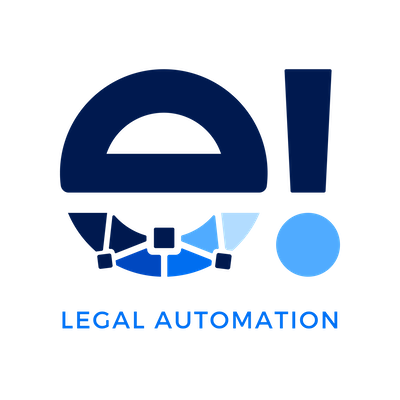Reducing Lawyers’ Everyday Tasks has become a central focus in the legal sector, where AI and automation have emerged as pivotal tools. These technologies offer a wide range of solutions to streamline operations and enhance efficiency in legal practice. Far from being just a trend, their integration is a necessity in the fast-paced environment of today’s legal industry. This section explores how AI and automation are revolutionizing legal practices, specifically by reducing the everyday tasks of lawyers. This reduction enables legal professionals to devote more attention to complex legal issues and client relations.
1. Streamlining Document Review and Management
Document review and management, traditionally labor-intensive tasks in the legal sector, are being revolutionized by AI and automation, significantly reducing lawyers’ everyday tasks. These technologies enable faster and more accurate document handling, substantially reducing the time lawyers spend on such tasks. Automated document management systems use advanced algorithms to categorize, tag, and index legal documents, speeding up the retrieval process and minimizing human error risk.
AI-powered tools take this a step further by offering natural language processing capabilities. They can analyze large volumes of legal documents, identify relevant information, and suggest edits based on legal precedents and case law. This not only accelerates the review process but also enhances the quality of documents, crucial in environments where precision and speed are essential for reducing lawyers’ everyday tasks.
Moreover, these technologies aid in compliance and risk management. AI systems trained to recognize and flag potential compliance issues within documents play a pivotal role in risk assessment and management, particularly valuable in areas like corporate law where adherence to regulations is paramount. As we progress, further integration of AI in document management is expected, with more intuitive and interactive systems continuing to play a significant role in reducing the workload of lawyers and allowing them to focus on more strategic aspects of their practice.

2.Reducing Lawyers’ Daily Tasks with Legal Research and Due Diligence Automation
AI has significantly transformed legal research, a key area in reducing lawyers’ everyday tasks. Advanced AI tools now have the capability to analyze extensive legal databases rapidly, extracting relevant case laws and statutes efficiently. This innovation greatly reduces the time lawyers traditionally spend on legal research, allowing them to concentrate more on analyzing legal implications and developing effective strategies.
In the realm of due diligence, automation has introduced a new level of efficiency and accuracy. Automated tools are capable of quickly verifying facts, checking compliance, and assessing risks in legal matters. This advancement significantly decreases the manual labor typically involved in due diligence, enabling lawyers to provide more comprehensive and reliable advice to their clients.
Overall, the application of AI and automation in legal research and due diligence is revolutionizing the way lawyers work. By streamlining these critical aspects of legal practice, lawyers can allocate more time to higher-value activities. This not only enhances their effectiveness but also improves the quality of service provided to clients, making it a cornerstone in reducing lawyers’ everyday tasks.
3.Increasing Client Engagement and Communication while Minimizing Lawyers’ Daily Tasks
AI and automation are increasingly vital in reducing lawyers’ everyday tasks, particularly in the realm of client interaction and communication. AI-driven tools, such as chatbots, are now central in providing efficient responses to routine client inquiries. This technology efficiently handles a high volume of basic questions, freeing up lawyers to focus on more complex aspects of client needs and case preparation.
Automated scheduling and client management systems are also transforming client interactions in legal practice. These systems efficiently manage appointments and follow-ups, significantly reducing the administrative burden on lawyers. By offering personalized communication options, they ensure clients receive timely and clear information about their cases, streamlining client engagement and reducing the time lawyers spend on administrative tasks.
The integration of AI-powered analytics is another leap forward in understanding and catering to client needs. By analyzing client interaction data, lawyers can tailor their communication strategies, thereby enhancing client satisfaction and engagement. This focus on personalized communication is crucial in building robust client relationships and is a key aspect of reducing lawyers’ everyday tasks, allowing th

4. AI in Contract Analysis and Drafting Reduces Lawyers’ Daily Tasks
Contract analysis and drafting are critical yet intricate tasks in legal practice, directly related to reducing lawyers’ everyday tasks. AI has significantly changed these areas, offering tools for automated analysis and drafting assistance. AI systems can quickly review contracts, identify key clauses, and highlight potential issues or inconsistencies. This accelerates the review process and enhances the accuracy and quality of contracts, contributing to reducing lawyers’ everyday tasks.
In contract drafting, AI tools assist lawyers by suggesting language, clauses, and formats appropriate for specific contracts and legal requirements. They can also customize contracts based on client needs and legal precedents. This customization ensures that contracts are not only legally sound but also tailored to the specific needs of the parties involved, playing a key role in reducing lawyers’ everyday tasks.
Furthermore, AI-driven contract analytics provide insights into contract performance and risk factors. By analyzing large volumes of contract data, these tools identify trends, potential risks, and improvement areas. This information is invaluable for lawyers in negotiating and drafting contracts, allowing them to make informed decisions based on empirical data, thus reducing the manual workload. As AI in contract analysis and drafting continues to evolve, its sophistication in reducing lawyers’ everyday tasks is expected to grow, with advancements like enhanced natural language processing and deeper integration with legal databases.
5. Ethical Considerations and Future Implications
In the legal industry, the adoption of AI and automation, while instrumental in reducing lawyers’ everyday tasks, raises crucial ethical considerations, including data privacy, algorithmic bias, and accountability in automated decisions. As these technologies continue to evolve, the sector faces the challenge of balancing efficiency with ethical integrity. Ensuring compliance with data protection laws, addressing potential biases in AI algorithms, and establishing clear guidelines for accountability are paramount. The future of legal practice will hinge on navigating these ethical complexities while leveraging technological advancements to enhance legal services.






